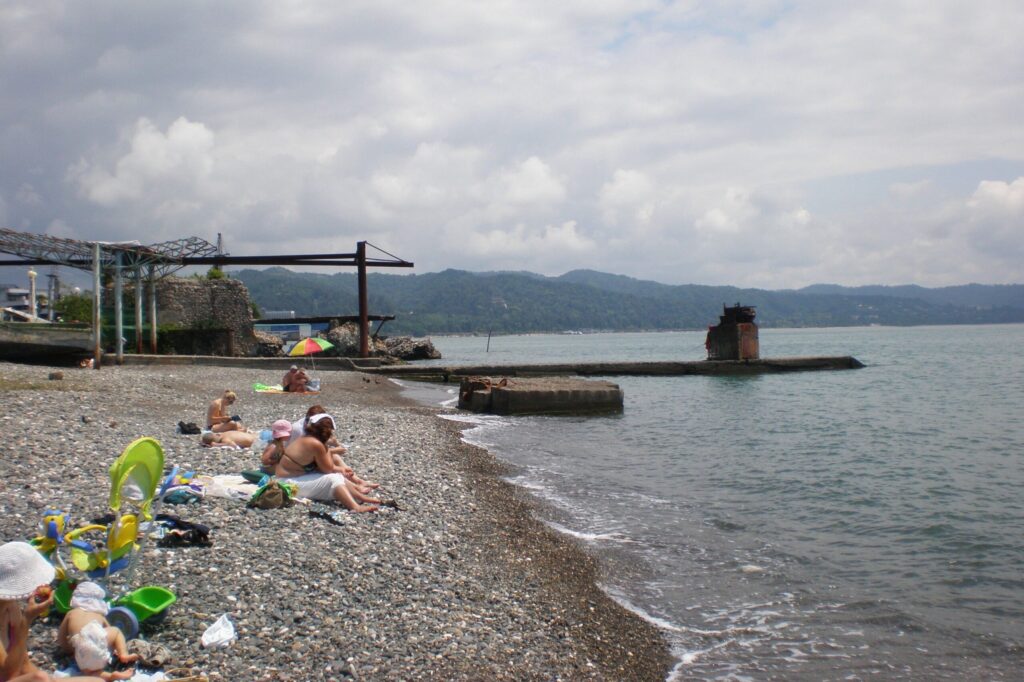The Russian Foreign Ministry has said they have been forced to warn their citizens about the ‘risk’ of travelling to Abkhazia, after a man convicted of raping a Russian tourist in 2019 was released from prison.
In a statement published online on 16 February, the ministry condemned what it said was a ‘lenient attitude’ by the Abkhazian courts.
Edgar Abukhba was convicted in 2021 of attacking and raping a Russian woman in Sukhumi (Sukhum) in July 2019, when he was 17 years old.
He was originally sentenced to nine years in a general regime penal colony, however, this was later raised to a high-security penal colony on appeal. Earlier this year the Supreme Court ruled that his original sentence should stand, leading to his release.
The Supreme Court of Abkhazia released a statement responding to the Russian Foreign Ministry and explaining the circumstances surrounding Abukhba’s release. They said that as Abukhba was under the age of 18 at the time of the crime, he could only be sentenced to serve time in a general regime penal colony.
‘Similar norms for assigning types of correctional institutions are enshrined in the criminal legislation of the Russian Federation’, they added.
Because no such prison exists in Abkhazia and Abukhba instead served his sentence in a high-security penal colony, each year he served was counted as two.
While not responding directly to the Russian Foreign Ministry’s warning, Abkhazia’s Foreign Ministry published a statement the following day in which they insisted relations with Russia were as strong as ever, while conceding that ‘of course, questions arise from time to time that require special attention’.
‘Our fraternal allied relations, based on the principle of sovereign equality of states, are not subject to revision either on the Abkhaz or Russian side’, the statement said.
The Ministry of Internal Affairs of Abkhazia also commented on Russia’s implication that Abkhazia was not safe for tourists, insisting crimes against tourists were being reduced.
‘According to statistics, from May to September 2023 inclusive, there were only 50 crimes against or involving tourists, while in previous years there were many more’, the press ministry told Russian news agency RIA Novosti.
The Trade Union of Tour Guides of Abkhazia also responded, suggesting the Russian Foreign Ministry’s statement could be connected to unrelated political issues between Abkhazia and Russia.
‘We sincerely hope that this statement does not have political motives’, they wrote, ‘and we express concern on this issue, taking into account the possible impact on the tourism sector of Abkhazia, which, of course, is of great importance for the country’s economy and its development as a whole.’
They went on to defend Abkhazia as a tourist destination. ‘We express the hope that isolated cases of crimes, which also exist in other countries visited by Russian citizens, will not turn into a topic for such statements that cast a shadow on the friendly relations between our states.’
The note came at a time of heightened tensions between Russia and Abkhazia.
Earlier in February, reports circulated that a protest note had been handed by Russia to the Abkhazian Foreign Ministry concerning the transfer of a state dacha in Putsunda to the Russian Federal Protective Service.
Those claiming to have seen the note said Russian authorities were unhappy that Abkhazia had prohibited the transfer of the territory to any third party.
Abkhazian and Russian authorities have neither confirmed nor denied this, nor if the Russian Embassy statement was in any way connected to the incident.
For ease of reading, we choose not to use qualifiers such as ‘de facto’, ‘unrecognised’, or ‘partially recognised’ when discussing institutions or political positions within Abkhazia, Nagorno-Karabakh, and South Ossetia. This does not imply a position on their status.




 21 February 2024
21 February 2024



